It seems that SEGA is really working hard to turn their console publishing arm around, with recent changes on how they localize games which included announcing three Yakuza games coming to the West. This of course has fans like me very excited and yesterday SEGA-Sammy posted their financial report that ended on December 31st, 2017. It was filled with good and bad news.
Let’s take a look at what SEGA-Sammy had to say about their performance in the last nine months.
Sales are down and so is operating income…
Hey, look, let’s open this up with some bad news. According to the SEGA financial report sales for these last nine months are down by 8.7% (¥260,804m) and at the same time operating income took a nosedive by dropping 26.9% to ¥25,623m. It seems that SEGA-Sammy is predicting another 10% drop in annual sales and another 56% drop in income for this full financial year that ends this upcoming March. This will seem terrible and I have been seeing quite a bit of people online saying that this is because no one is buying SEGA games. The issue is that SEGA isn’t just a video game company, if anything, game sales are actually up (we will go over them). So why did SEGA drop in sales and operating income?
SEGA’s digital games have reported a 17% drop. While you will point at Sonic Mania, as its digital only, SEGA actually says its due to mobile games! Yep, those are digital too. According to SEGA its due to the increasingly fewer dominating publishers in the app stores and that they need to make ‘higher quality’ content. This means that they will take longer to create mobile games in the future.
Not only that, SEGA-Sammy’s past bread and butter division has also dropped revenue. Can you guess it? Pachinko and pachislot machines have been sluggish. This isn’t actually new, it seems that the whole industry in Japan has seen a big drop in sales and operating income. Though this December SEGA-Sammy announced that it has gotten a contract to manufacture and sell gaming machines in Nevada which could see a big boost for their business. We shall see.
SEGA video games sales increased…
It seems that SEGA Entertainment division is still getting settled since they had a massive restructure back in 2015. Before SEGA America would produce, market and release their own games aimed at Western audiences; which isn’t something that appealed to hardcore SEGA fans. After the restructure it seemed that SEGA America would try to focus more on localization of Japanese titles which brought us back franchises like Yakuza, Puyo Puyo and for the first time a 7th Dragon game. Quite frankly, to me, this is a good thing.
Seems that the plan is working? I mean, SEGA saw a 1.6% annual sale increase and a 12.3% jump in their operating income (just for their games division). According to SEGA-Sammy, physical games jumped 23% in sales compared to last year thanks to Football Manager 2018, Sonic Forces (YES! You read that one right) and Yakuza Kiwami 2 (in Japan). Sadly no numbers where posted by the company, so we don’t know how Sonic Forces performed world wide. Its also a bit strange that they didn’t talk about their localization efforts in the West. But then again, this is for Japanese investors.
SEGA has positive outlook for console games…
While it sucks that SEGA-Sammy as a whole has been seeing a drop in sales and income revenue; the company seems to have a positive outlook on its game publishing arm. According to the report SEGA is targeting big success for the upcoming Valkyria Chronicles 4 and Hokuto Ga Gotoku. They also have high hopes for their mobile game Shin Megami Tensei Liberation, which they announced will get a world wide release. They also teased that they are producing a Japanese cartoon called Yowamushi Pedal Glory Line which will launch with a massive toy line in Japan.
Like stated before, they had a massive restructure in 2015 to their game publishing division. It seems that sales and income in this division has increased and as they move forward they will be able to adjust what works and what didn’t to maximize profit. Personally would love for SEGA-Sammy as a whole to profit in each division, but personally only really care about their video game division and that at least is doing well.
What do you guys think? Is this the doom for SEGA-Sammy?

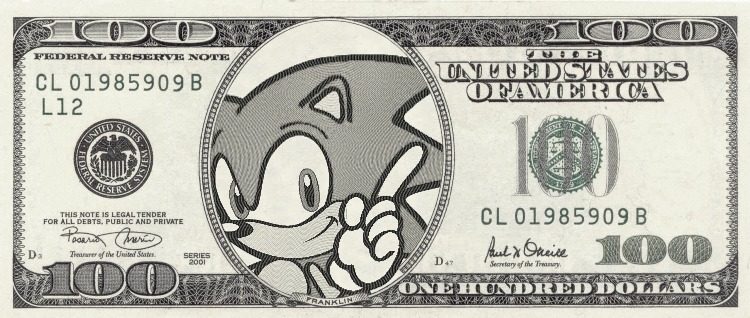
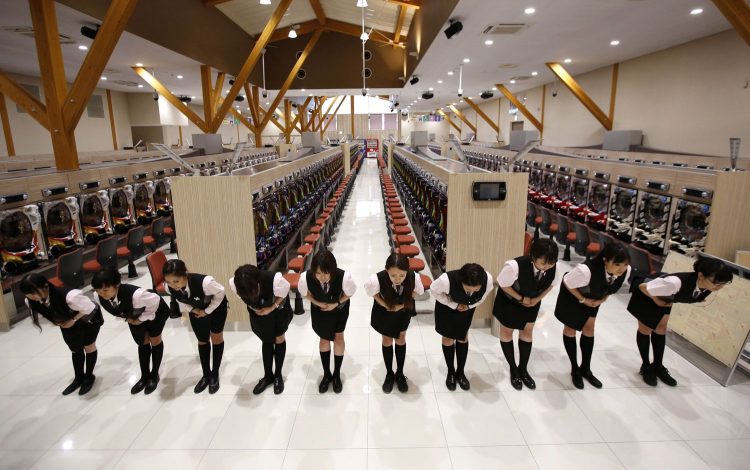
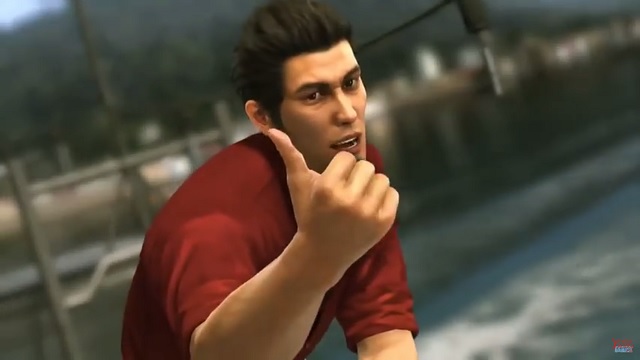
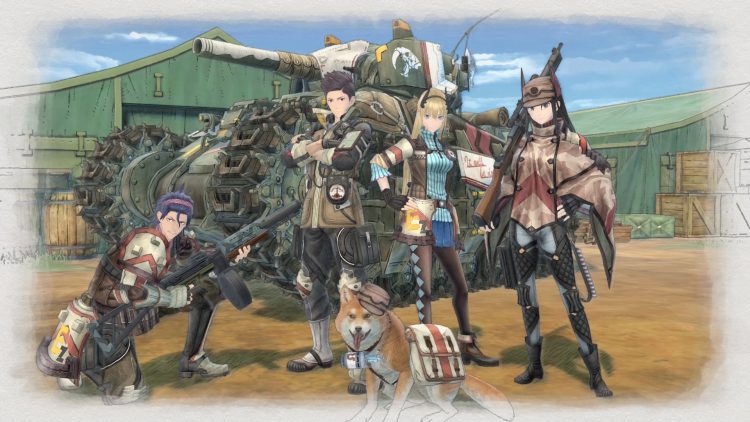
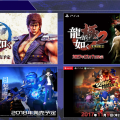




SEGA, I’m telling you, let go of this contract with Southeast Asia, and release Phantasy Star Online 2 in the West. Despite the “Japanese PSO2 Master-Race” western crowd who willingly violates your ToS on a daily basis, there are many people who would jump in on the opportunity to support the localization. Your hardcore fans will thank you in advance.
I wonder how SEGA could benefit of they split from the Sega-Sammy holdings company, it was the Sammy management side that wanted Sega to stop releasing official Dreamcast licensed GD-Rom titles, leaving it exclusively to third party offlicenses and homebrewers, hence Puyo Puyo Pop Fever was Sara’s last official release on Dreamcast in 2004 and G.Revs Under Defeat in 2006 and Border Down amongst many others and straight Sega licenced Naomi to Dreamcast conversions and refurbished Dreamcas t systems.
It was also when Sega legends left the company as they felt Sega was less Sega than before the merger deal in 2003 and the dislike of the Sammy side of management ect, like Mizuguchi of Sega Rally and Rez fame. Eventually Fuji Naka left and To Suzuki too a few years later – though it’s claimed for different reasons but who knows for sure how much the merger ultimately factored into it to some degree.
While it made Sega the biggest videogame company overnight, it seems to have come at a price as well, and SEGA has let themselves go a bit since the denouement of the Dreamcast and 2001 management restructure, Sega would probably be even more Sega outside of the merger, with less Sammy influence clouding over it.
So true! I think we have to remember though how hard Sega was financially between 97-2004. After being on shaky ground for so long the Sammy merger at the very least at the time gave them some sense of financial security
Yes it might have come at a price in other areas to varying degrees, but Sega had still been deeply in the red for the 4th year running up to the Dreamcast swansong, and the market trend didn’t show much of a reverse until right to the very end in fall 2000 – where sales were so strong that Sega was actually losing about £/$14 for every Dreamcast unit produced, so they effectively got forced into a price war that wasn’t deemed sustainable and the next two years weren’t that great, it was really hard decision to make and SEGA did admit it was an option they were having to consider, Hideki Sato of Sega’s engineering hardware team had to act as a stand in vice president after Isao Okawa’s passing and oversee the difficult discontinuation of the Dreamcast phase, he stayed in that post up to 2004 just around the time the merger was beginning to happen.
So they definitely needed new background capital topped up and the Sega-Sammy merger almost never happened at one point, but negotiations happened again for a second time after Hajime bought more controlling shares (about 21% I think).
*Con’t, Someone saw fit to record the full stream live as it happened and later uploaded it to YouTube when it became available a few years later, though surprisingly no one’s saw fit to do a full translation of the event considering how it’s such a historic moment in the industry as a whole.
Here’s a snippet of it ~ https://m.youtube.com/watch?v=8WTxxmuk0PU
As you can see, there’s Hideki Sato (the main Sega guy who lead the engineering design of pretty much all of Sega’s home systems) there giving the speech about the future of Sega and the Dreamcast.
RIP Sega then?
SEGA will never really die, at least their image, anyway, for a while it seemed their soul did a bit with the Dreamcast, but I the it’s not that it really did, just that Sammys influenced has replaced CSK institute, some in CSK worked in Sega like the late Isao Okawa, and vice versa.
But SEGA is too legendary a brand to ever die, even SNK – significantly less popular than Sega has their name kept under new administration after they went bankrupt – which has never happened to Sega, with SNK Playmore to appease the strong dedicated SNK fans who wanted SNK back. They might get shifting influences here and there with different parent companies, like what happened with Ballys, Gulf and Western and CSK and now Sammy, but they will always be around.
Nah Sammy is still a very rich company. Even if Sammy goes bankrupt, others will buy out SEGA. It’s such a strong brand name. Even in 2018, nowadays.
Said at the start, SEGA needed more focus on console games not mobile
Anyone care to talk about why Sega went from an ‘Enterprise’ to a ‘Corporation’ – pretty sure that was the very start of Sega disbanding it’s internal hardware (Sega Away 27) team led by Hideki Sato.
Isao Okawa in-fact spoke at the 1999 Dreamcast press conference and expressed hints that Sega’s home hardware business would be suspended after the Dreamcast platform as early as this, not long from the time Dreamcast’s widely successful western launches of the Dreamcast happened.
It seems it was a more insidious long term plan and probably has something to do with Microsoft’s involvement in supplying the Dreamcast with a custom chip set for Sega’s platform, look at the early concept of what was to become the Xbox as early as 1999, they were based off of the Dreamcast and Samus Blakely admitted this not long ago.
Also, Isao Okawa had tried to secure a deal with Microsoft for a while it transpired.
When you think about it in hindsight, before Sega suspended their home hardware series and before Microsoft came in, all the major players were predominantly Japanese, could this have been a way to push a big western player into a growing industry and take advantage of Sega’s weakening hold on the industry to achieve that?